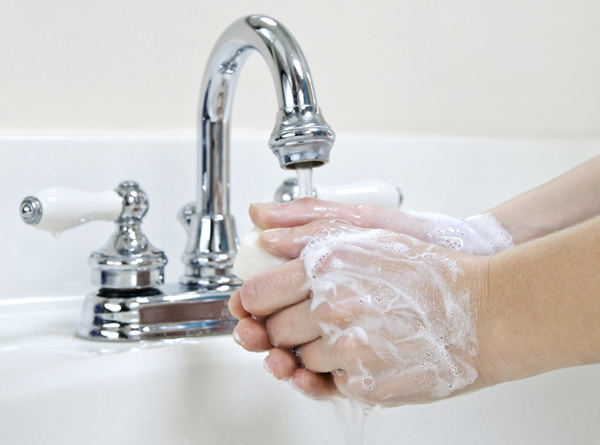
Colds and flus and stomach bugs — they’re all part of the school year, but children and parents can help protect themselves from those illnesses.
School officials said they all maintain a strict, daily cleaning regimen in an effort to keep germs under control. In addition to what the janitorial crews do, teachers and staff members are constantly wiping things down with Lysol cloths.
Invariably though, contagious bugs appear and can spread through the school like old-time plagues as sick kids touch desks, water fountains, door handles and each other. When this happens, cleaners ramp up their efforts to kill the germs and contain the sickness, but ultimately, they need the students’ help.
Ask any nurse — or staff member who serves as a nurse — and their first piece of advice is “lots of handwashing!”
Signs dot the schools, encouraging students to wash frequently. Soap and water is the best defense, plus hand sanitizers are kept in every classroom and office. Parents can also include small bottles or wipes in their child’s lunchbox.
Children can also contain germs by coughing and sneezing into the crook of their arm.
“It boils down to the basics of taking care of yourself,” said Kathy Wilbur, a registered nurse at Cardinal Newman in Columbia. “Especially at this age, the hardest part are the simple things, like getting rest.”
Here are some other tips nurses recommend:
Healthy eating habits
Teens need more than pizza and burgers, so take a multi-vitamin and munch on snacks such as grapes, nuts or baby carrots.
Start your day with a glass of water and breakfast. Nurses practically beg students to eat some form of breakfast, even if it’s just a banana or granola bar on the way to school.
“Their brains work better because of it,” said Judy Snyder, a licensed practical nurse at Bishop England in Charleston.
Adequate rest and exercise
Bodies that are rundown are more susceptible to germs, Snyder said, noting that teens need 8½ to 10 hours of sleep a night, and younger children require 10 to 11 hours.
“They don’t get that, I know,” she said.
Still, she encourages healthy sleep habits. “Try to go to sleep at the same time, don’t have the TV on, and don’t have your phone on,” she said, adding that even if it’s on silent, the vibration and light register at some level and disrupt sleep. “They don’t realize they’re constantly waking up every time the phone dings.”
Don’t drink after anyone
Nurses said trying to avoid germs by wiping the mouth of a bottle is pointless, because the germs are in the liquid.
Stay home when you’re sick
“We encourage parents to keep them home when they’re sick,” said Jackie Ferrari, administrative assistant at St. Andrew School in Myrtle Beach. “They’re supposed to be 24 hours fever-free before returning.”

